The Need to Confirm the Diagnosis in YOUR Office
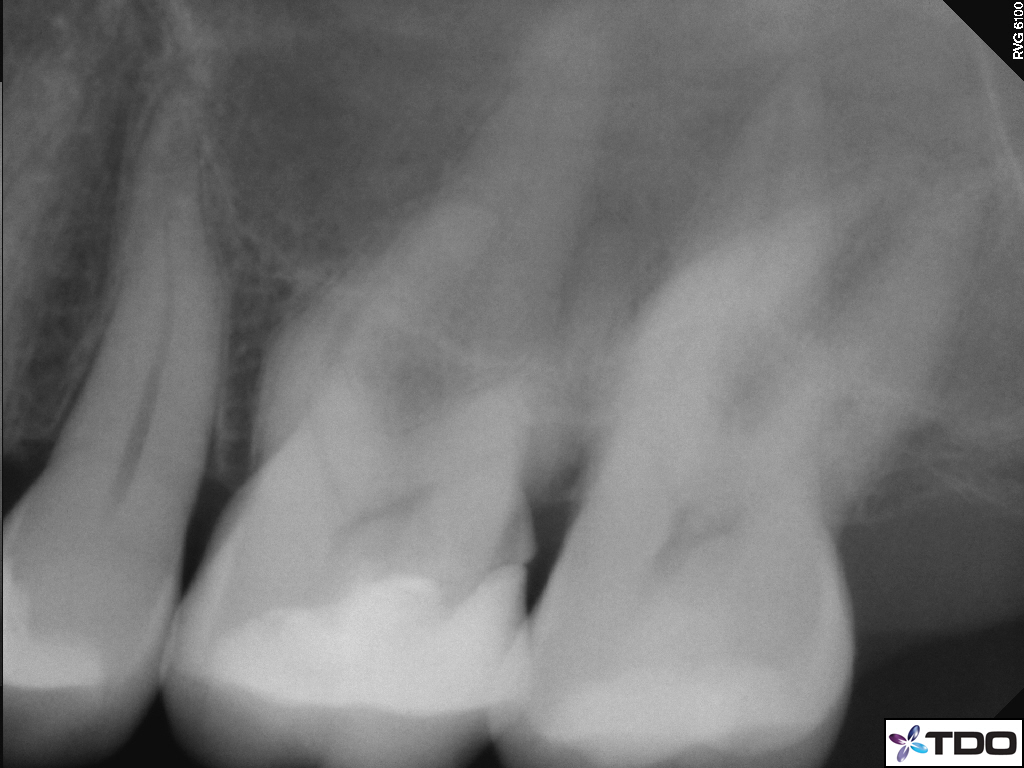
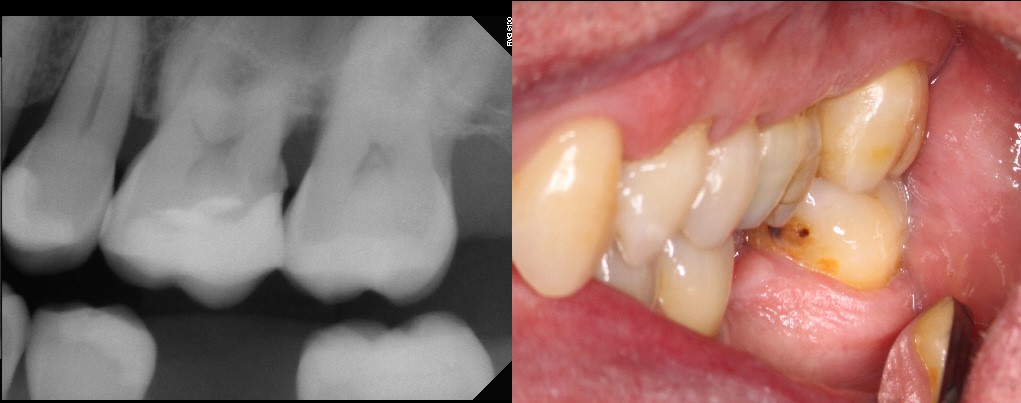
A 47 year old female patient was referred to me for endodontic treatment of a maxillary left first molar (#26). The tooth had been restored heavily with a multi-surface composite that appeared to be approximating the pulp . The patient had been having elevated thermal sensitivity and the referring dentist was considering placing a full Crown restoration because of the size of the existing composite. He wished to have the tooth devitalized to minimize the possibility of irreversible pulpitis after final cementation of the full Crown. The composite restoration appeared to be quite deep and the request seemed reasonable. Endodontic treatment was initiated and completed without incident.
However a few days later the patient called my office saying that the original thermal symptoms have not resolved. The patient was seen for re-examination at which time I noted that the second molar (which was barely restored with a shallow occlusal composite barely through the enamel), appeared to have a crack running down the distal marginal ridge. The mandibular first molar (#36) had been extracted many years ago and this tooth appeared to be in greater than normal function due to the lack of opposing dentition. Transillumination confirmed the presence of the crack and thermal tests confirmed that symptoms were coming from #27, the second molar.
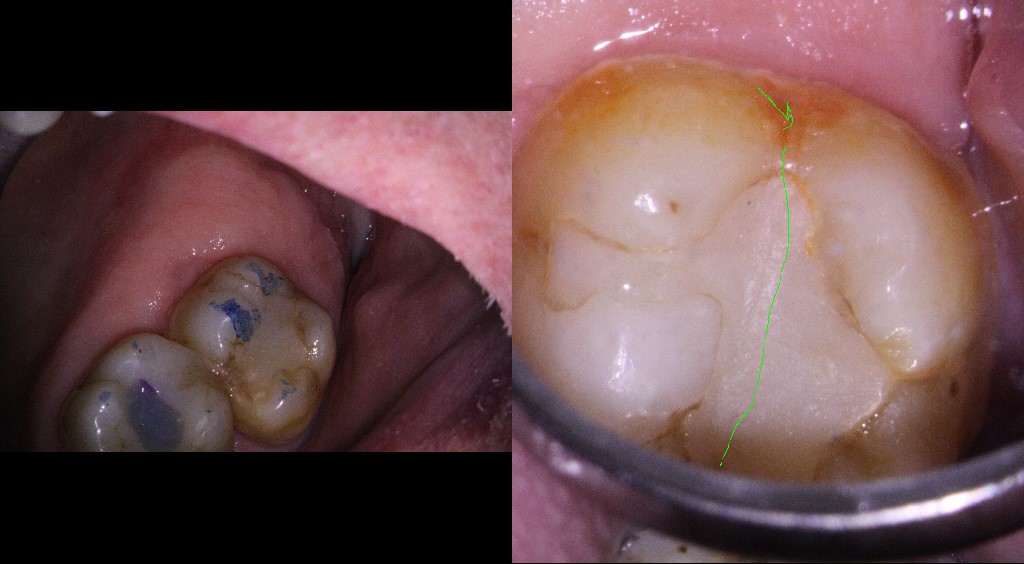
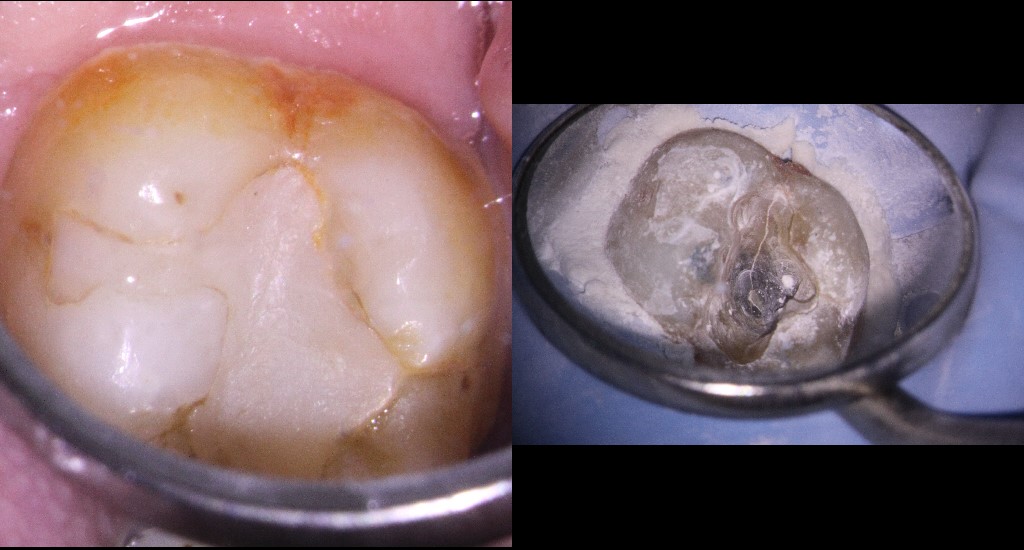
The tooth was accessed and a crack was noted on the occlusal surface running across mesial distally. Endodontic treatment was completed without incident and the patient’s symptoms disappeared.

Methylene Blue Dye was used to stain the crack

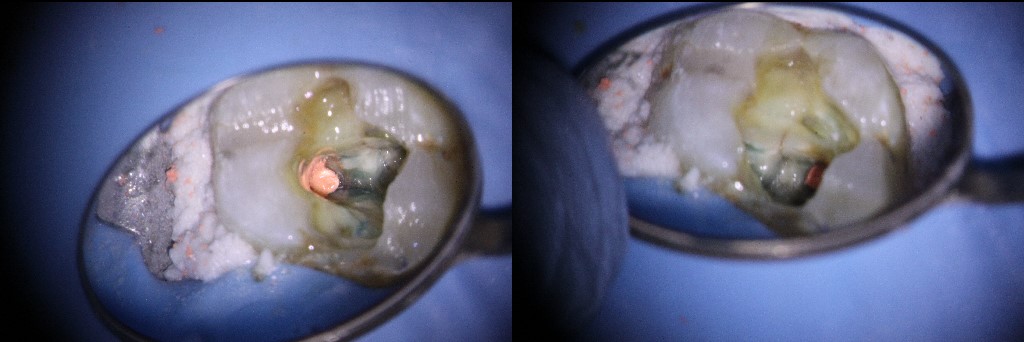


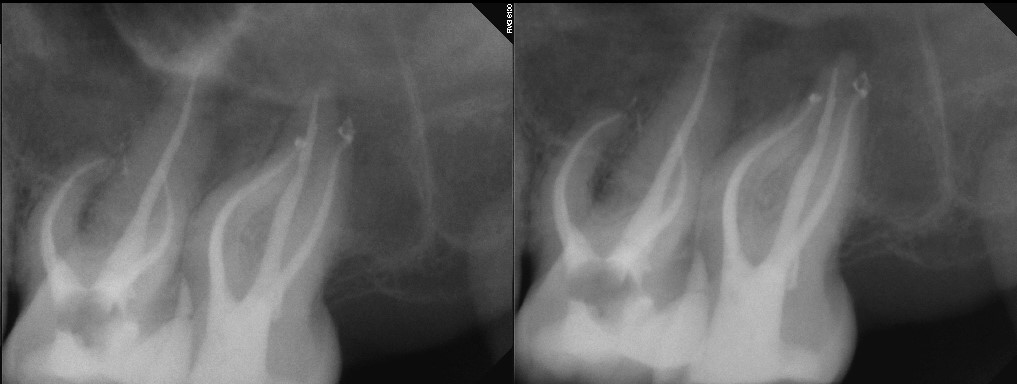
The original referring dentists request seemed reasonable, considering the history of #26 and his need to restore it. However because I did not perform pulp tests on the adjacent tooth and I assumed (incorrectly) that the patient’s symptoms were coming from this heavily restored first molar. (I perform a lot of “elective Endo prior to prosthetics, so this request is common.)
The lesson to be learned from this episode is that well meaning dentists may have good intentions, but it is still important to perform diagnostic procedures in your office and not rely upon other’s recommendations or diagnosis before initiating treatment in your own office.
